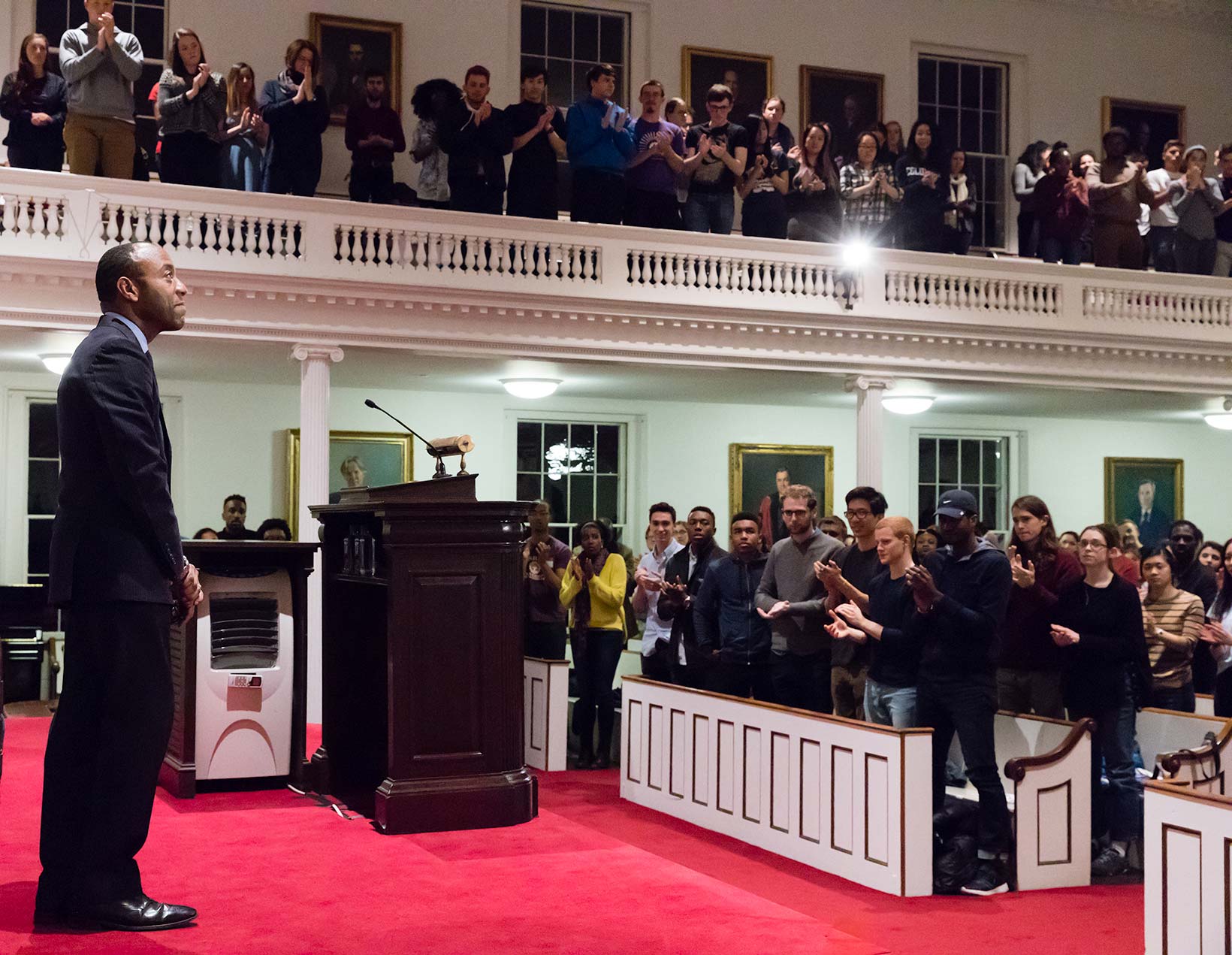
Cornell William Brooks began his talk before a packed Johnson Chapel on Friday night—a talk that would end with a prolonged standing ovation—with a self-deprecating anecdote about being a young, naïve, preacher.
He had walked into an cathedral in England, believing it to be full of parishioners, only to find just two elderly ladies waiting for him. One immediately fell asleep.
Even then, though, Brooks, a fourth-generation ordained minister, had a staunch philosophy about how to treat an audience. “You talk the same to two as you do to 2,000,” he said. “You preach with even more conviction.”
Brooks—now president and CEO of the National Association for the Advancement of Colored People (NAACP)—has lost none of that early passion or oratorical flourish, as his talk at Amherst made clear.
“We find ourselves tonight, as a community of students, faculty, as a community of citizens and those who aspire to be citizens, at an anguishing hour of our democracy,” he said. “Millions of Americans stand symbolically on the outside looking in.”
Brooks, who has served as a trial attorney for the U.S. Department of Justice and as special and senior counsel to the Federal Communications Commission, called out some national problems he sees: a normalization of anti-Semitism, the mainstreaming of misogyny and “Machiavellian voter disenfranchisement.”
In response, he said, a new generation of activists—people who stood against the “vicious vectoring upward” of such problems—are now refusing “to join the committee of hand-wringing pessimists.”
“We, with any sense of history, understand there is much to be hopeful about, much to be confident in, when we look at this generation of activists,” he said. “We should be encouraged, not discouraged. Students all across the country assert with confidence that we can do things differently.”
He described, for example, efforts of activists to remove questions about criminal histories from initial job applications—questions that create barriers that are often impossible to cross for those trying to re-enter the labor force, and that disproportionally affect African Americans.
“The criminal record has become a digital mark of Cain,” Brooks said, noting that both Rosa Parks and Martin Luther King Jr. had such records. “Everyone with a criminal record is not a crook.”
Brooks said he is also encouraged by reforms spearheaded by both millennial activists and the NAACP to reform voting rights.
Brooks—father of an Amherst sophomore—called upon the assembled students to claim aspects of the College’s legacy, such as an anti-slavery society started in 1838. During the Q&A following the talk, he elaborated on the idea that “if Amherst led the fight then, it can lead the fight today.”
“Think about your advocacy in the long-term,” he said. “Think about not just your class, or the class after you, but Amherst as an institution.”
He called on students to maintain dialogue with those whose ideas they oppose and to engage the faculty and administration. He urged young activists to choose issues that promise to resonate for decades, rather than those that are merely momentarily popular.
“To those who simply want to tweet the revolution, we appreciate that,” he added, “but we are challenging people to go beyond that.”
